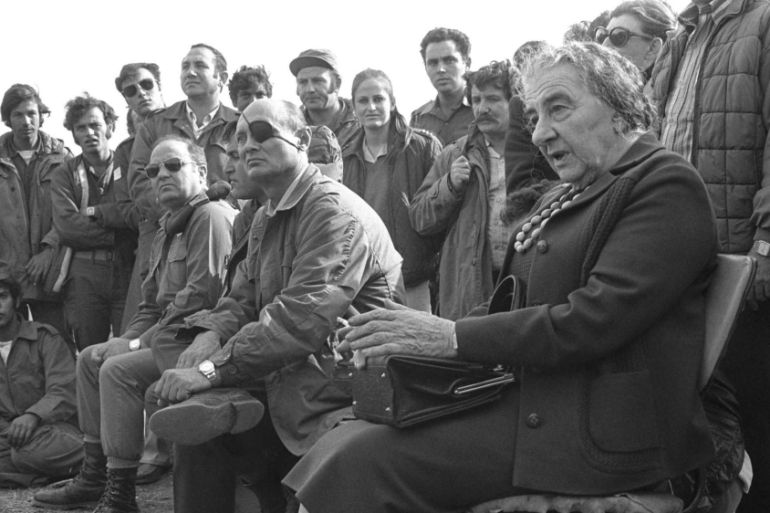‘The world doesn’t like Jews, let alone weak Jews’
In opening days of the Yom Kippur War, Israel’s leaders were certain that the international community had abandoned them.
Israeli Prime Minister Golda Meir
Israel today enjoys staunch support from the United States (though that has waned in recent years) and can even reasonably count on a number of European, African and Asian countries to have its back.
But it wasn’t always that way. In fact, Israel’s leadership just a short five decades ago was convinced that the international community was ready to sacrifice the Jewish state on an altar of history.
Documents declassified a couple years ago revealed that then-Prime Minister Golda Meir and her IDF generals believed that the world, including the “Christian” West, was entirely unsympathetic to Israel as it faced a devastating surprise invasion on Yom Kippur 1973 that threatened the Jewish state’s very existence.
“The situation is unsympathetic on both fronts,” the IDF brass is recorded as telling Meir on the second day of the war, referring to the coordinated joint invasion by both Egypt and Syria.
Israel’s first and only female prime minister responded: “The
little help we have from the international community will disappear,
they will throw us to the dogs. They don’t like Jews, let alone weak
Jews.”
 Israeli Prime Minister Golda Meir, right, and Defence Minister Moshe
Dayan meet their troops on October 21, 1973, on the Golan Heights during
the Yom Kippur War
Israeli Prime Minister Golda Meir, right, and Defence Minister Moshe
Dayan meet their troops on October 21, 1973, on the Golan Heights during
the Yom Kippur War
Meir went on to press her generals to hit the Egyptians and Syrians as hard as possible, to deliver “severe blows” in hopes of forcing the international community to intervene. Israel would go on to not only repel both invading armies, but to launch counter-invasions into both Egypt and Syria that threatened Cairo and Damascus, respectively. At that point, the international community did indeed step in and end the war before Israel could humiliate its enemies by forcing their surrender.
Perhaps Golda was right. Perhaps Israel only enjoys relatively broad support today because in the decades after 1973 it grew into a proven military, technological and economic powerhouse.
No comments:
Post a Comment